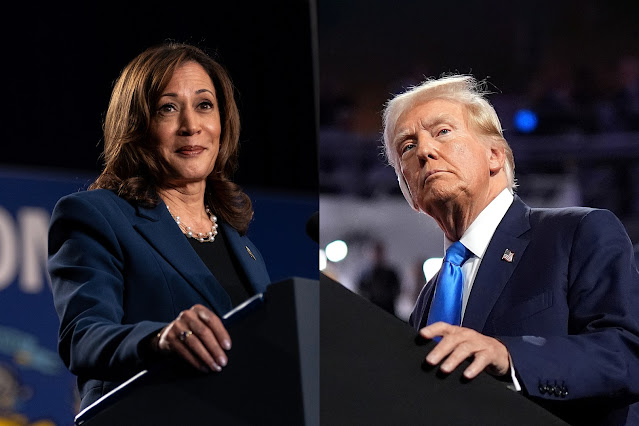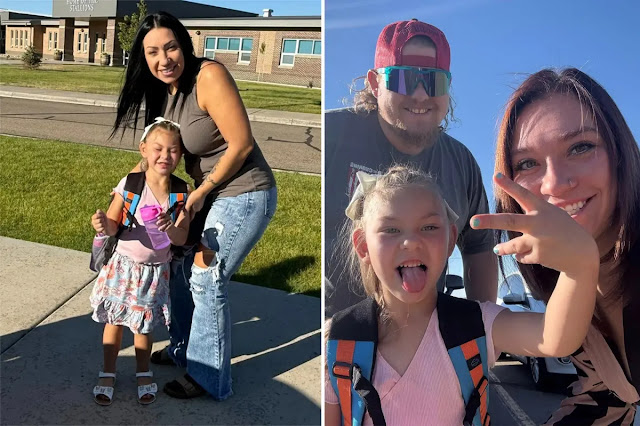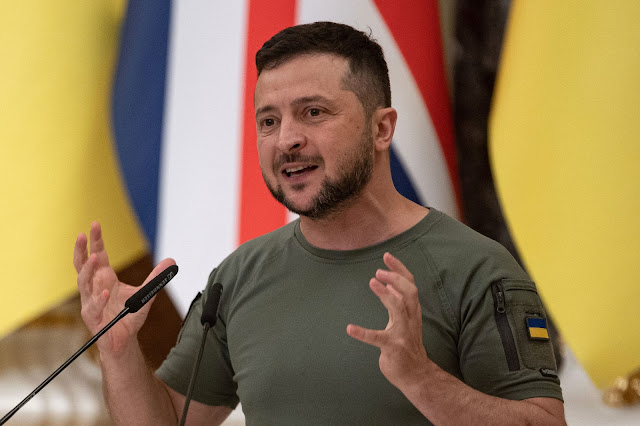On Thursday, August 28, 2025, a significant shift in the security arrangements for former U.S. Vice President Kamala Harris was announced, sparking widespread discussion and controversy. President Donald Trump issued a memorandum titled “Memorandum for the Secretary of Homeland Security,” which effectively terminated an extension of Secret Service protection for Harris that had been granted by former President Joe Biden. The directive, set to take effect on September 1, 2025, marks a pivotal moment in Harris’ post-vice-presidential life, raising concerns about her safety, the politicization of security protocols, and the broader implications for former public officials. This article delves into the details of the decision, its context, reactions from key figures, and the potential ramifications for Harris and the political landscape.
Background: Secret Service Protection for Former Vice Presidents
Under federal law, former vice presidents of the United States are entitled to Secret Service protection for a period of six months following the end of their term. This standard provision is designed to ensure a smooth transition from public office to private life, acknowledging the heightened risks that former high-ranking officials face due to their visibility and influence. For Kamala Harris, who served as vice president from January 20, 2021, to January 20, 2025, this six-month period expired on July 21, 2025.
However, former President Joe Biden, in a previously undisclosed executive action, extended Harris’ Secret Service protection for an additional year, a decision that ensured continued federal security for her through July 21, 2026. This extension was not uncommon, as previous administrations have occasionally prolonged security details for former officials based on assessed risks, public exposure, or ongoing national security considerations. Biden’s decision likely reflected Harris’ continued prominence as a political figure, her historic role as the first female, Black, and South Asian vice president, and the polarized political climate in the United States.
The extension provided Harris with a comprehensive security package, including a dedicated team of Secret Service agents, real-time threat intelligence, and monitoring of potential risks across various platforms, including in-person interactions, emails, text messages, and social media. Additionally, her Los Angeles residence was under federal protection, ensuring a secure environment as she transitioned to private life. Her husband, Doug Emhoff, who served as the Second Gentleman, had his Secret Service detail discontinued on July 21, 2025, in accordance with standard provisions for spouses of former vice presidents.
Trump’s Memorandum: A Sudden Reversal
The decision to revoke Harris’ extended Secret Service protection came in the form of a memorandum from President Trump, addressed to the Secretary of Homeland Security. The document, dated August 28, 2025, stated: “You are hereby authorized to discontinue any security-related procedures previously authorized by Executive Memorandum, beyond those required by law, for the following individual, effective September 1, 2025: Former Vice President Kamala D. Harris.” The brevity and directness of the memorandum underscored the abrupt nature of the decision, which took effect just days after its issuance.
The timing of the revocation is particularly notable, as Harris is preparing to embark on a multi-city book tour to promote her memoir, 107 Days. The tour, which marks her first major public appearances since leaving office, is expected to draw significant attention, both from supporters and critics. The loss of Secret Service protection means that Harris will no longer have access to the highly trained agents who have accompanied her in public and private settings, nor will she benefit from the agency’s advanced threat assessment capabilities. Her Los Angeles home, previously secured by federal authorities, will also lose its protective status, leaving Harris to arrange private security measures at her own expense.
The decision has sparked questions about the motivations behind Trump’s action. While the memorandum itself does not provide explicit reasoning, the move comes amid a broader pattern of actions perceived as retaliatory by the Trump administration. Critics argue that the revocation aligns with a history of targeting political opponents through measures such as firings, the revocation of security clearances, and other administrative actions. The timing, just days before Harris’ book tour, has fueled speculation that the decision is intended to complicate her public re-emergence and potentially expose her to greater personal risk.
Reactions: Outrage and Concern
The announcement of the revocation prompted swift and vocal reactions from prominent figures in California and beyond. California Governor Gavin Newsom, who was briefed on the change late on Thursday, condemned the decision in strong terms. Bob Salladay, a spokesperson for Newsom, issued a statement declaring, “The safety of our public officials should never be subject to erratic, vindictive political impulses.” Newsom’s response reflects a broader concern that the decision could set a precedent for politicizing security arrangements, undermining the safety of former officials who remain in the public eye.
Los Angeles Mayor Karen Bass echoed Newsom’s sentiments, describing the revocation as “another act of revenge following a long list of political retaliation in the form of firings, the revoking of security clearances and more.” Bass emphasized the potential danger to Harris, stating, “This puts the former Vice President in danger and I look forward to working with the Governor to make sure Vice President Harris is safe in Los Angeles.” The mayor’s commitment to collaborating with state authorities suggests that local and state officials may step in to provide alternative security measures, though such arrangements would likely fall short of the comprehensive protection offered by the Secret Service.
Kirsten Allen, a senior adviser to Harris, issued a statement on behalf of the former vice president, expressing gratitude for the Secret Service’s service. “The Vice President is grateful to the United States Secret Service for their professionalism, dedication, and unwavering commitment to safety,” Allen said. The statement did not directly address the revocation or its implications, focusing instead on acknowledging the agency’s efforts during Harris’ tenure and beyond.
Neither the White House nor the Secret Service provided immediate comments in response to inquiries from CNN, leaving the public and media to speculate about the administration’s rationale and the logistical details of the decision. The lack of transparency has further fueled criticism, with some arguing that the administration owes the public an explanation for a move that could have significant consequences for Harris’ safety.
Implications for Harris: Security and Financial Burdens
The loss of Secret Service protection poses immediate challenges for Harris as she navigates her post-vice-presidential career. The upcoming book tour for 107 Days is expected to place her in high-visibility settings, including public events, media appearances, and book signings across multiple cities. Without Secret Service agents, Harris will need to rely on private security firms to ensure her safety, a transition that comes with both logistical and financial complexities.
Private security for a figure of Harris’ prominence is a costly endeavor. Estimates suggest that providing comparable protection to that of the Secret Service could cost millions of dollars annually. This includes hiring trained security personnel, implementing advanced threat monitoring systems, and securing her home and travel arrangements. For a former vice president who is no longer receiving a government salary, these expenses could represent a significant financial burden, particularly as she seeks to maintain a public presence through her memoir and other endeavors.
Beyond the financial implications, the revocation raises concerns about Harris’ safety in an increasingly polarized and volatile political climate. As a historic figure and a prominent voice in Democratic politics, Harris remains a target for both political criticism and potential threats. The Secret Service’s threat intelligence capabilities, which include real-time monitoring of social media, emails, and other communications, are difficult to replicate through private means. The absence of such resources could leave Harris more vulnerable to risks that are not immediately apparent, particularly during high-profile public events.
The decision also has broader implications for the treatment of former public officials. The Secret Service’s role in protecting former vice presidents and other high-ranking officials is rooted in the recognition that their public service continues to carry risks long after they leave office. By revoking Harris’ protection, the Trump administration has sparked a debate about the extent to which security decisions should be influenced by political considerations. Critics argue that such actions could deter future leaders from entering public service, knowing that their safety may not be guaranteed once their terms end.
Political Context: A Pattern of Retaliation?
The revocation of Harris’ Secret Service protection cannot be viewed in isolation from the broader political context. Since returning to the presidency in January 2025, Trump has faced accusations of targeting political opponents through administrative actions. These include the dismissal of federal employees perceived as disloyal, the revocation of security clearances for critics, and other measures seen as settling scores from his first term and the 2024 election cycle. The decision to end Harris’ protection fits into this pattern, particularly given her status as a leading figure in the Democratic Party and a potential contender for future political office.
Harris’ vice presidency was marked by significant challenges, including navigating a deeply divided political landscape and addressing contentious issues such as immigration, voting rights, and criminal justice reform. Her tenure also made her a lightning rod for criticism from conservative groups, some of whom continue to view her as a symbol of progressive policies they oppose. The decision to revoke her protection has been interpreted by some as an attempt to weaken her ability to engage publicly, particularly as she promotes her memoir and potentially lays the groundwork for future political endeavors.
The timing of the revocation, just days before Harris’ book tour, has further fueled speculation about political motivations. The tour is expected to provide Harris with a platform to share her reflections on her vice presidency and articulate her vision for the future, potentially positioning her as a key voice in the Democratic Party. By removing her Secret Service protection, the Trump administration may be seeking to complicate her ability to carry out this tour safely and effectively, though no direct evidence of such intent has been made public.
Broader Implications: Security, Politics, and Public Service
The revocation of Harris’ Secret Service protection raises fundamental questions about the intersection of security, politics, and public service. The Secret Service’s role is designed to be apolitical, ensuring the safety of current and former officials regardless of their party affiliation or public stances. By altering Harris’ protection status, the Trump administration has opened the door to accusations of politicizing a critical government function, potentially eroding trust in the impartiality of security protocols.
The decision also highlights the challenges of balancing cost, logistics, and safety in protecting former officials. While federal law mandates six months of protection for former vice presidents, extensions are often granted based on individual circumstances. Biden’s decision to extend Harris’ protection likely reflected an assessment of her ongoing risk profile, given her historic role and continued public engagement. Trump’s revocation, by contrast, appears to prioritize a strict interpretation of federal law over considerations of risk, raising questions about how such decisions are made and who has the authority to make them.
For Harris, the loss of protection underscores the vulnerabilities faced by former public officials in an era of heightened political polarization. The rise of online threats, misinformation, and targeted harassment has made public life increasingly fraught, particularly for women and people of color in high-profile roles. Harris, as a trailblazer in American politics, has faced disproportionate levels of scrutiny and hostility, making the need for robust security measures all the more critical.
Looking Ahead: Harris’ Next Steps
As Harris prepares for her book tour and beyond, she will need to navigate the practical and symbolic implications of this decision. The immediate challenge will be securing private security arrangements that can adequately protect her during public appearances and at her Los Angeles home. This may involve coordination with state and local authorities, as suggested by Mayor Bass, as well as private firms with expertise in high-profile security.
The publication of 107 Days represents a significant moment in Harris’ post-vice-presidential career. The memoir, which chronicles her 107-day campaign as the Democratic presidential nominee in 2024, is expected to offer insights into her experiences, challenges, and aspirations. The book tour will provide Harris with an opportunity to reconnect with supporters, engage with the public, and shape her legacy as a historic figure. However, the loss of Secret Service protection adds a layer of complexity to these efforts, requiring careful planning to ensure her safety.
Politically, the revocation could galvanize Harris’ supporters and critics alike. For her base, the decision may be seen as an attack on her legacy and a reminder of the ongoing challenges faced by women and minorities in public life. For her detractors, it may be viewed as a justified rollback of what they see as unnecessary government expenditure. Regardless of perspective, the move has thrust Harris back into the national spotlight, ensuring that her next steps will be closely watched.
Conclusion
The revocation of Kamala Harris’ Secret Service protection by President Donald Trump marks a significant and controversial development in her post-vice-presidential life. Effective September 1, 2025, the decision ends an extension granted by former President Joe Biden, leaving Harris without federal security as she prepares for a high-profile book tour. The move has drawn sharp criticism from figures like California Governor Gavin Newsom and Los Angeles Mayor Karen Bass, who argue that it endangers Harris and reflects a pattern of political retaliation.
The implications of this decision extend beyond Harris herself, raising questions about the politicization of security protocols, the safety of former public officials, and the broader dynamics of American politics. As Harris navigates this new reality, she will need to balance the financial and logistical challenges of private security with her desire to remain an active voice in public life. The controversy surrounding the revocation underscores the complexities of transitioning from public office to private citizenship, particularly for a figure as prominent and polarizing as Kamala Harris.
As the nation watches how this situation unfolds, it serves as a reminder of the delicate balance between security, politics, and public service in an era of deep division. Whether through state support, private arrangements, or public advocacy, ensuring Harris’ safety will be a priority for her allies and a test of the nation’s commitment to protecting those who have served at its highest levels.






